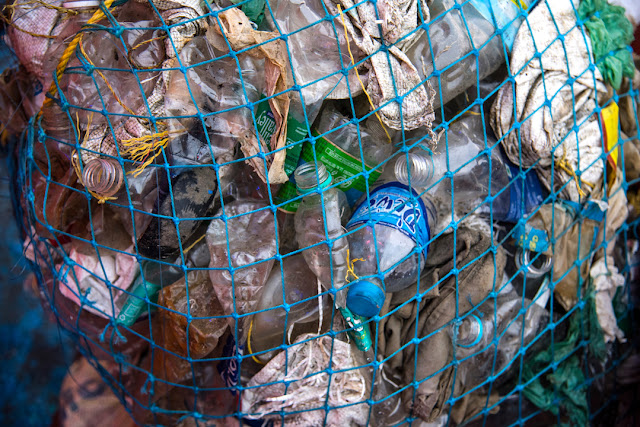In 2018, as the global host to UN World Environment Day, India had promised to phase out single-use plastic (SUP) by 2022 with the theme ‘Beat Plastic Pollution’. During the UN Environment Assembly meeting held in Nairobi, in March, India piloted a resolution on phasing out SUP by 2022, a deadline later updated to 2025.
Earlier this month, Prime Minister Narendra Modi, at the United Nations Conference on Desertification said, “I think the time has come for the world to say goodbye to single use plastic,” reiterating his government’s intention to phase out SUP. As if on cue, the plastic industry went in to protest mode, raising the usual bogey of threats to the livelihoods of plastic industry workers and how ‘businesses will find themselves stuck with proscribed equipment and will have to incur additional costs to replace old machinery’ at a time of ‘economic slump and slowdown’. We are told about how SUP is actually a very small percentage of plastic waste that is littering our landscapes and finally, we are told that plastic is not a problem, instead, we should improve India’s ill-managed waste management systems.Even former environment minister of the Congress-led United Progressive Alliance (UPA), Jairam Ramesh, took the opportunity to tweet, "As Environment Minister I resisted blanket ban on the use of single-use plastic. Plastic industry employs lakhs and the real problem is how we dispose and recycle waste.”
If Modi’s most recent pronouncement was yet another test balloon, the government was quick to pull it back down. Union Environment Minister Prakash Javadekar clarified at a press conference that “there is no imminent ban on the use of single-use plastic in India, that the “Prime Minister Narendra Modi didn't say ‘ban’, but said 'goodbye’ to SUP waste. From October 2, we will begin an attempt to collect all that waste. Nearly 10,000 tonnes of plastic waste remains uncollected,” he pointed out.
SUP are commonly used for plastic packaging and include items such as plastic bags, food packaging, bottles, straws, containers, cups and cutlery, intended to be used only once before they are thrown away or recycled.
According to a UNEP 2018 report, 79 per cent of the plastic waste ever produced now sits in landfills, dumps or in the environment, while about 12 per cent has been incinerated and only 9 per cent has been recycled. In Europe alone, the estimated costs for cleaning shores and beaches reach €630 million per year (European Commission 2015).
According to PlastIndia Foundation, a conglomeration of associations and institutions that deal in plastic, India consumes an estimated 16.5 million tonnes, about 1.6 million trucks full of plastic annually. Of this, 43 per cent is plastic manufactured for single-use packaging material.
About 80 per cent of the total plastic produced in India is discarded immediately and will find its way to landfills, drains, rivers and flow into the sea. Currently, the country is able to recycle only about 4 million tonnes of its plastic waste. A recent study by Thiruvananthapuram-based NGO Thanal estimated that there was 1,057 tonnes of plastic litter present along the beaches of Kerala.
The plastic industry in India is estimated to grow to 22 million tonnes (MT) a year by 2020 and nearly half of this is SUP, according to a Federation of Indian Chambers of Commerce and Industry (FICCI) study.
Imagine 11 million tonnes of SUP waste being added to the already existing mountains of plastic waste every year. There are no studies available about the overall economic impact of plastic pollution but a study by Asia-Pacific Economic Cooperation (APEC) estimated a $1.3 billion economic impact of marine plastics to the tourism, fishing and shipping industries in that region alone.
It is indeed true that banning SUPs today will hurt a large part of existing investments in machinery and impact jobs in the plastics industry but future costs of removing all single-use plastics accumulating in the environment will most certainly be higher than the costs of allowing this polluting industry to grow today. The solution to India’s problems with plastic waste should be addressed by ensuring sustained effort to cut down consumption and investing in the recycling sector. SUP has no place on this planet.
First Published on Sep 16, 2019 in MoneyControl.

No comments:
Post a Comment